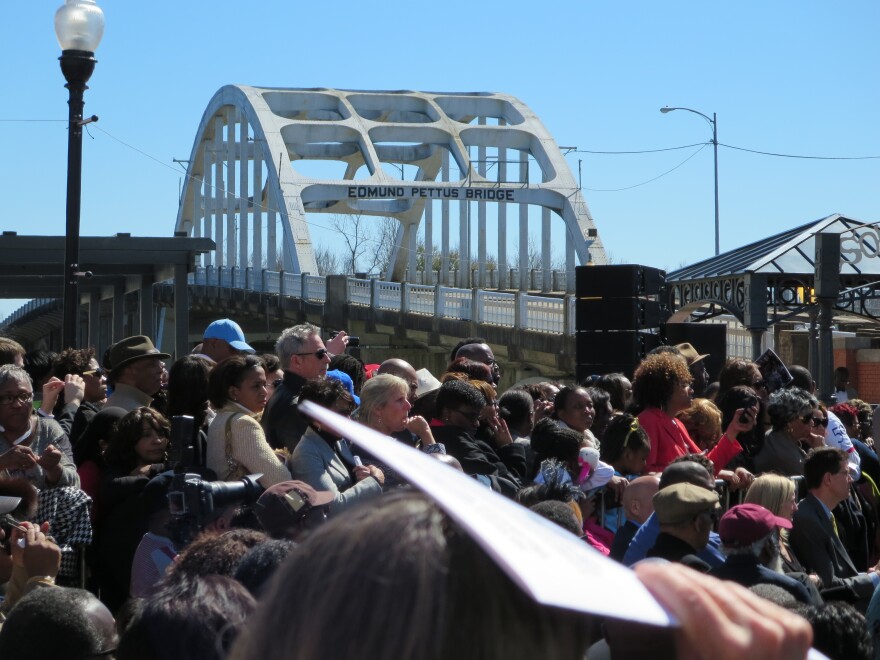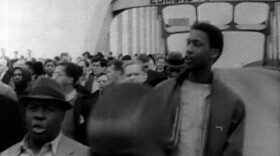Federal agencies will take specific steps to promote access under a new executive order from President Joe Biden. The order comes as congressional Democrats press for a sweeping voting and elections bill to counter efforts to restrict voting access. Biden announced the plan during a recorded address on the 56th commemoration of the 1965 incident known as "Bloody Sunday."
Some 600 civil-rights activists were viciously beaten by Alabama state troopers as they tried to march for voting rights in Selma, Alabama. Alabama Public Radio covered the 50th anniversary of the “bloody Sunday” attack during its international award-winning documentary “More Bridges To Cross.” Montgomery city council Bennie Lee Tucker served as the “human shield” of Dr. Martin Luther King, Junior in Selma in 1965. He told APR the voting rights marches were spurred by the shooting death of civil rights activist Jimmie Lee Jackson.
“They were saying, John Lewis, and James Austin, let’s go to Montgomery. And, we’ll take the body of Jimmie Lee Jackson and put it on the state Capitol, and let Governor Wallace know what he had done, and his people.” Civil rights activist Jimmie Lee Jackson died nine days before after being shot by an Alabama state trooper… . “And so, it was decided that the casket was too heavy to carry fifty miles, so we’ll just walk,” says Tucker. “And, we started to walk and we were met with the tear gas.”
APR’s coverage chronicled the 50th anniversary ceremony, which included comments from President Barack Obama, and the late Congressman John Lewis, who was among the voting rights marchers who were attacked on the Edmund Pettus Bridge in 1965.
“We were beaten…tear gassed…some of us were left bloody right here on this bridge,” recalled Congressman and civil rights activist John Lewis who was among the foot soldiers on ‘bloody Sunday.’ “Seventeen of us were hospitalized on that day. But, we never became bitter or hostile. We kept believing that the truth we stood for would help to follow us there,” said Lewis. “ This city, on the banks of the Alabama river, gave birth to a movement that changed this nation forever. Our country will never, ever, be the same because of what happened on this bridge.”
Click below for Alabama Public Radio’s stories related to the 50th anniversary of “bloody Sunday” in Selma.







